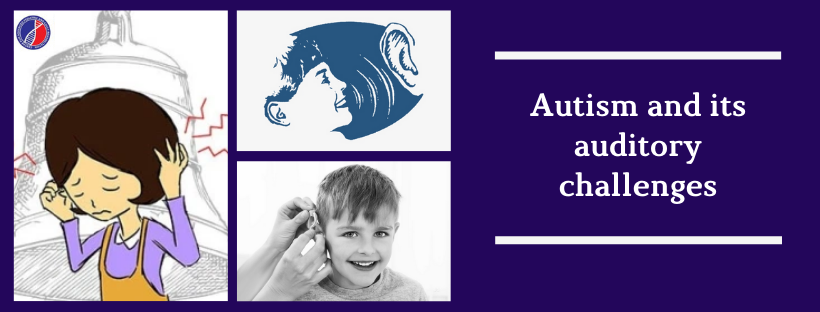Autism and its auditory challenges
Autism spectrum disorder (ASD) cases are increasing day by day. About 1 child out of the 100 children is now diagnosed with ASD. Patients with autism face a range of auditory challenges that slower their social and interpersonal development.
Autism has got a tag for social and communication problems. Around 60% of the patient having autism report that they experience social isolation. Sometimes patient isolates themselves and in rest of the cases surrounding people starts to avoid them due to the higher degree of miscommunication.
Even after the sky-kissing technological development, increasing social media communication through chatting and other written medium, processing of auditory information is still the most critical component of social communication. A person having autism experiences complexity in such auditory processing. These make them incapable of communication and socializing concerning the people without autism.
Now let’s come to the specific problems that autism patients face.
Difficulties in distinguishing sounds. We all know language is a combination of several sounds and each sound is associated with a specific meaning. Now when a person having Austin hears a sound, she or she might not be able to distinguish several sounds from each other. As a consequence, they experience difficulties to perceive the exact meaning of the heard sound.
In capabilities of hearing all of the sounds. Due to the weaker response rate of the auditory nerve, a few of the sounds might get missed too. These lead to misinterpretation of the speech and create a barrier to normal social mixing and communication.
Example: Suppose someone is saying the word ‘Show,’ the person with ASD might hear it as ‘shoe.’
Delayed or disordered processing of auditory information. Alternative difficulties might also be there. Sometimes ASD patients heard the sound properly, that is ‘shoe.’ But lack of disordered auditory information processing capabilities prevents them to understand the meaning at an instant.
Lack of speech comprehension. As a patient with autism suffers from a lack of speech comprehension, surrounding people might consider it the wrong way. They simply consider the person as unwilling to comply, while in reality, the person is unable to comply.
Increased level of anxiety. As autistic patients communicate mostly with blind guesses so they suffer from a higher degree of anxiety related to misunderstanding and low performance. Such patients usually have confused characters.
Noise intolerance and sound sensitivity. Due to temporal processing problems like rhythm, pitch, and timing cues, it’s become hear for an Austin patient to offer a timely response in a chaotic and noisy environment. Such a patient feels irritated in social gathering and become too much sound and noise sensitive.
Why a person with autism experience such as auditory processing?
The reason is still not obvious. Ranges of researches are under process. However, the majority of audiologist agree with the fact that in the case of an autistic individual, a specific area of the limbic system called, ‘hippocampus’ remain neurologically immature. This hippocampus is the director of sensory input, cognitive learning, and memory. So immaturity of this hearing part makes people incapable of proper auditory processing.
Due to such auditory difficulties, auditory processing evaluations, auditory training, or remediation programs does not work for autism patient. Rather, specialists refer them to auditory processing skills strengthening therapy.
So this all about the auditory challenges associated with autism. If you have further questions please feel free to write to us.

